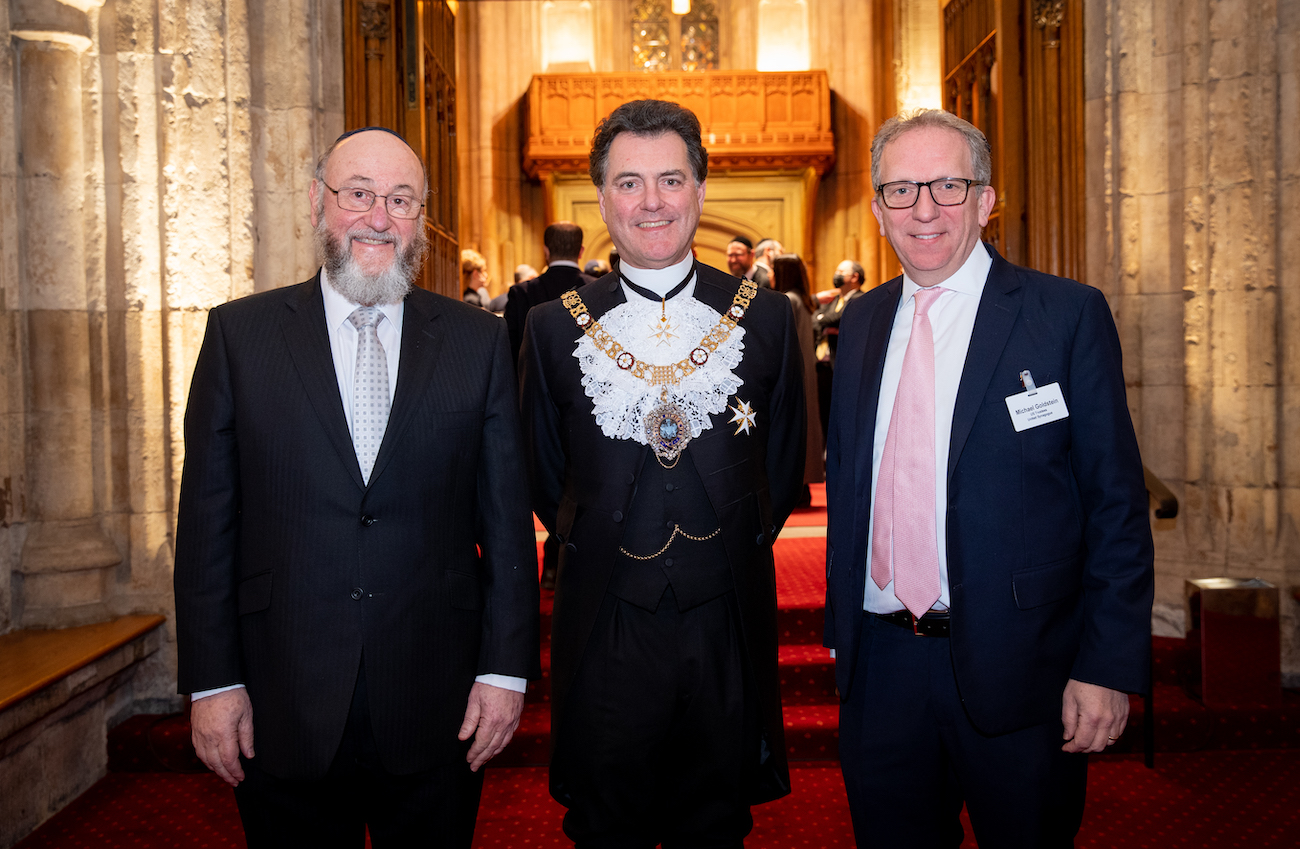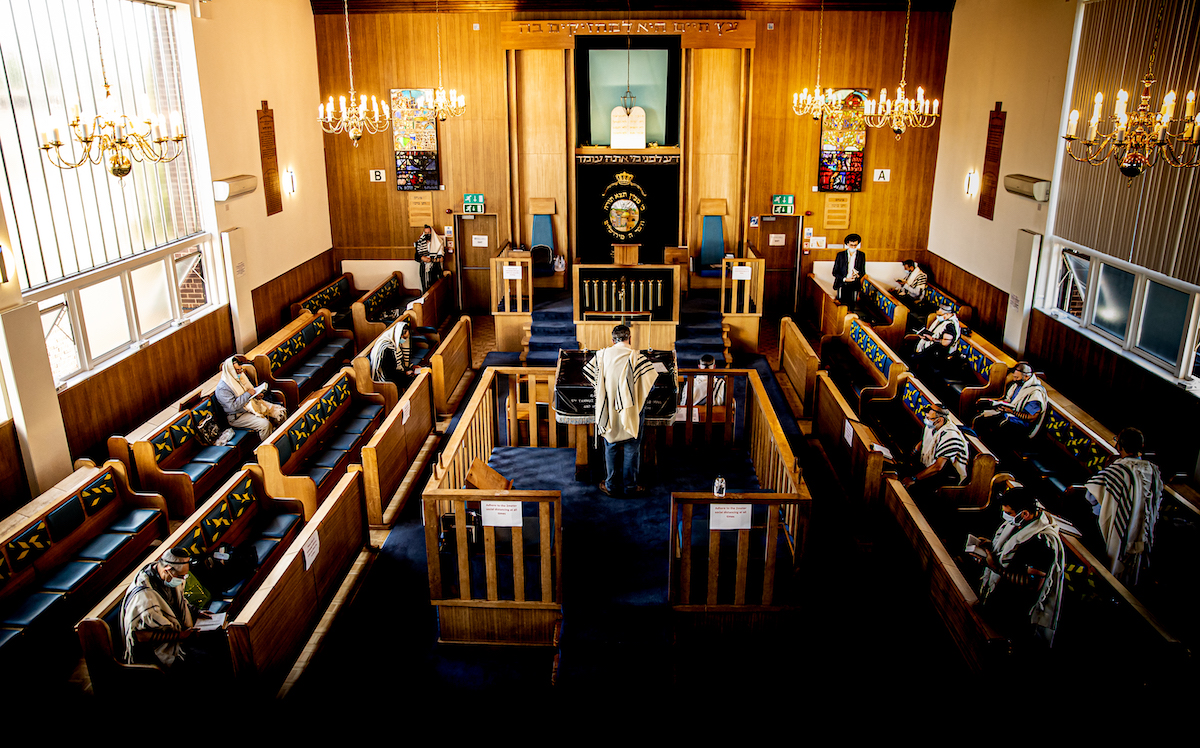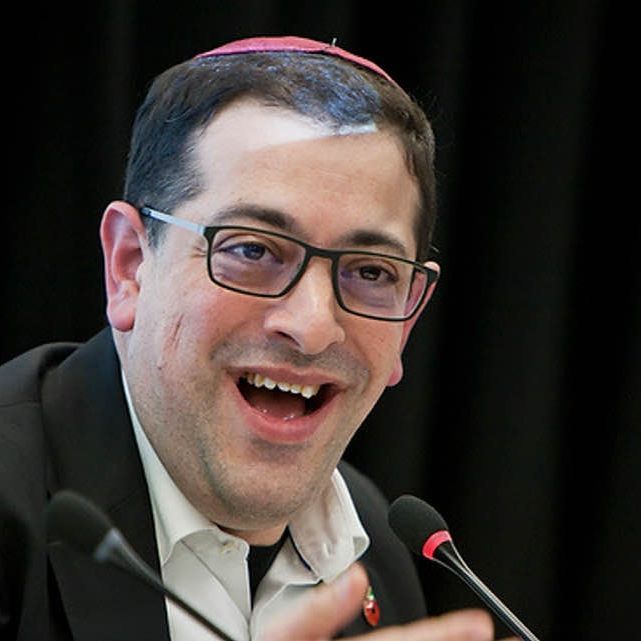OPINION: Should we be concerned about rabbinical leadership in the UK?
As 14 senior religious leaders step back from their roles, Rabbi Alex Goldberg suggests ways in which rabbis can be offered more practical support in leading their communities.

Challenging times often reveal the character of societies, institutions, and individuals. As we emerge from the shadow of a global pandemic, we find ourselves at a crossroads with new and unprecedented challenges to our communal institutions.
One particular alarming trend, the widely reported withdrawal of 14 esteemed United Synagogue rabbis since lockdown, prompts reflection. Is this an ominous sign of systemic issues within the religious leadership of the UK, or a temporary setback?
During lockdown, faith leaders, traditionally our pillars of comfort and guidance, confronted challenges previously unforeseen. They grappled with an influx of funerals, the surging pastoral care needs of congregants struggling with loss, bereavement, furlough or simply the stresses of working from home. They did this while financial pressures loomed large in our communal institutions.
This predicament wasn’t restricted to the UK or Judaism alone; clergy across diverse faiths globally have shared in these trials.
In my role overseeing 25 university chaplains and associates, sent by and representing eight faiths and worldviews, I’ve had a front-row seat to the myriad struggles that different religious institutions have faced.

However, within our Jewish community, it’s pivotal to realise that these pressures didn’t spontaneously appear during the pandemic. Conversations with my fellow rabbis have confirmed that these challenges were long-standing in many congregations and that recent events accentuated them. What remains paramount is our capacity to adapt, evolve, and draw lessons from these unique circumstances.
An inspiring takeaway from the lockdown has been our collective ability to innovate and collaborate. In the face of adversity, the resilience of the human spirit shone brightly. My own experiences with colleagues to create an open air “Grab and Go Iftar”, “Seder in the Tent” and the largest Christmas lunch in the South East of England for hundreds of students unable to fly home due to restrictions.
The pandemic underscored our adaptability for innovation. Clergy seamlessly transitioned into roles as digital presenters and producers, thereby expanding their reach well beyond their usual congregations. In our case, we produced over 800 programmes that had over one million views and counting. Many communities had similarly rewarding experiences.
Nevertheless, amidst these commendable strides, the strain on our faith leaders cannot be downplayed. A substantial number reported feeling overwhelmed. Their significance in our community is immeasurable; rabbis aren’t merely ceremonial figureheads or prayer leaders but at their best the very bedrock that anchors our communities during unpredictable times.

The acceptance and open acknowledgment of needing support, prevalent among Millennial families and GenZ, signifies a cultural shift. The rabbi’s evolving role as pastoral counsellor on university campuses over the last decade is a testament to this change.
This inclination is now gradually being echoed by younger families joining synagogues. The increasing demand for rabbis who double as pastoral counsellors is undeniable. For me, initiatives like the Mental Health and Halakhah course initiated by the Senior Rabbi of the Spanish and Portuguese Communities are essential and timely.
The role of the rabbi pastoral counsellor will only grow and in order to meet community needs we need to plan for the future. At the University I was lucky enough to collaborate with pandemic experts to plan out everything before lockdown. It helped. There will be other emergencies in the future but of equal importance is our need to adapt to the increasing demands placed on our clergy resulting from this societal shift.
Drawing from our collective experiences, there needs to be a post-lockdown blueprint for the Jewish community which includes:
– Community self-assessment: Esteemed bodies, like the JLC, should undertake a holistic review of our pandemic response, with a keen focus on bolstering support mechanisms for pivotal community professionals, such as our rabbis.

– Clinical supervision for rabbis: It’s imperative that every rabbi receives access to clinical supervision, a service offered to most counsellors, aiding them to navigate their intricate roles and pastoral care responsibilities.
– Counselling accessibility: Prioritising access to counselling services for our rabbonim is essential in crisis situations.
– Peer networks: To offset the inherent isolation synonymous with clerical roles, regular peer check-ins, much like the ones we initiated for our chaplains, can be invaluable.
– Career flexibility and ongoing development: It’s crucial to offer avenues for our rabbis to smoothly transition between varied communal rabbinic roles, recognising and nurturing their diverse talents, and propelling professional advancement through both formal and informal educational routes.
– We are a people business: and like most people businesses we need to look after our key workers if we hope to retain them.
To me, these aren’t just optional guidelines but vital mandates.
While some initiatives might require substantial investment, the timeless wisdom, direction, and unwavering support that our rabbis provide deem them absolutely essential.
Our collective duty is to unfailingly back our faith leaders. The Talmud poignantly states, “Whomever benefits from a thing without showing gratitude for it, it is as if he robs the Divine and the assembly of Israel” (Berakhot 35b).
In simpler terms: let’s wholeheartedly support those who support us.
- Rabbi Alex Goldberg is Dean of Religious Life and Belief at the University of Surrey

Thank you for helping to make Jewish News the leading source of news and opinion for the UK Jewish community. Today we're asking for your invaluable help to continue putting our community first in everything we do.
For as little as £5 a month you can help sustain the vital work we do in celebrating and standing up for Jewish life in Britain.
Jewish News holds our community together and keeps us connected. Like a synagogue, it’s where people turn to feel part of something bigger. It also proudly shows the rest of Britain the vibrancy and rich culture of modern Jewish life.
You can make a quick and easy one-off or monthly contribution of £5, £10, £20 or any other sum you’re comfortable with.
100% of your donation will help us continue celebrating our community, in all its dynamic diversity...
Engaging
Being a community platform means so much more than producing a newspaper and website. One of our proudest roles is media partnering with our invaluable charities to amplify the outstanding work they do to help us all.
Celebrating
There’s no shortage of oys in the world but Jewish News takes every opportunity to celebrate the joys too, through projects like Night of Heroes, 40 Under 40 and other compelling countdowns that make the community kvell with pride.
Pioneering
In the first collaboration between media outlets from different faiths, Jewish News worked with British Muslim TV and Church Times to produce a list of young activists leading the way on interfaith understanding.
Campaigning
Royal Mail issued a stamp honouring Holocaust hero Sir Nicholas Winton after a Jewish News campaign attracted more than 100,000 backers. Jewish Newsalso produces special editions of the paper highlighting pressing issues including mental health and Holocaust remembrance.
Easy access
In an age when news is readily accessible, Jewish News provides high-quality content free online and offline, removing any financial barriers to connecting people.
Voice of our community to wider society
The Jewish News team regularly appears on TV, radio and on the pages of the national press to comment on stories about the Jewish community. Easy access to the paper on the streets of London also means Jewish News provides an invaluable window into the community for the country at large.
We hope you agree all this is worth preserving.





















